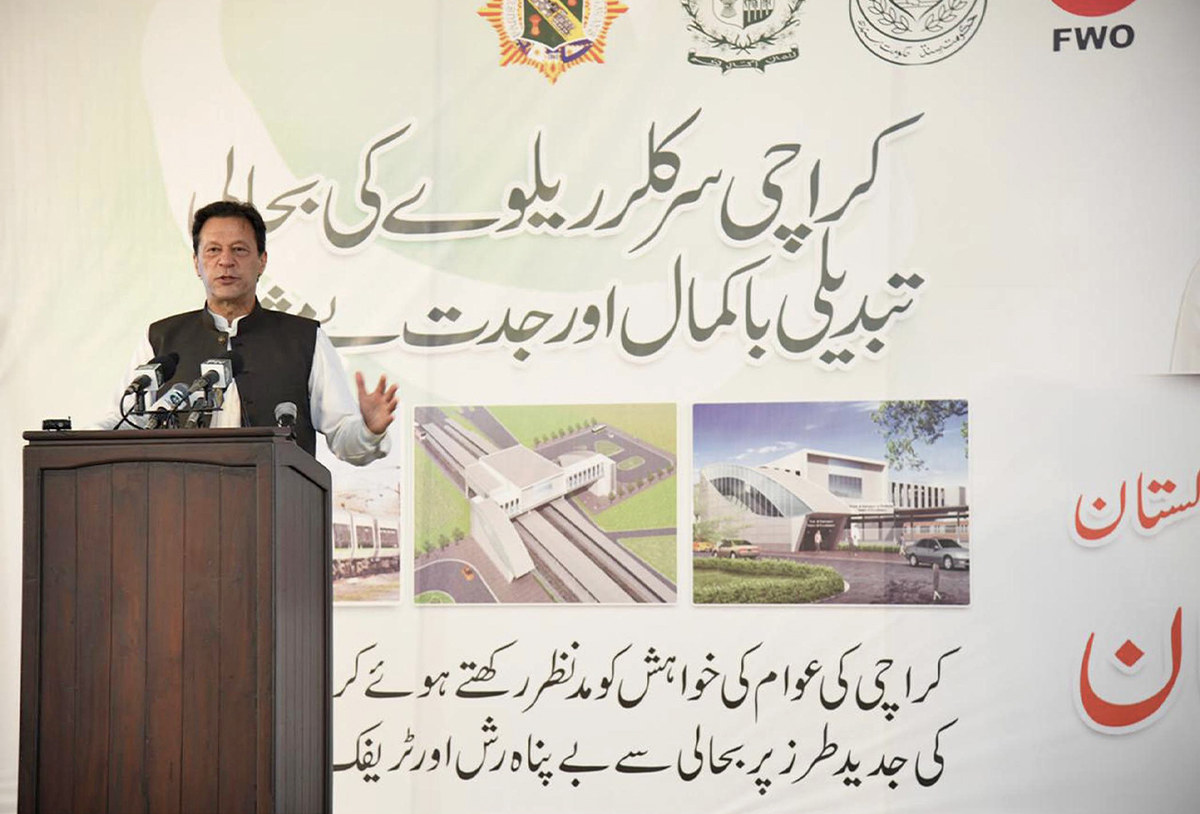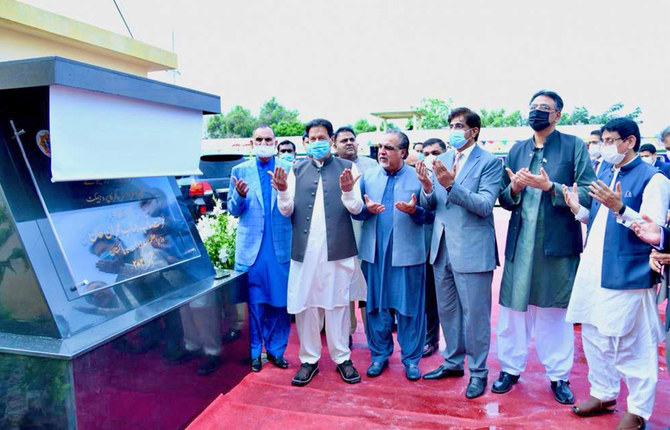KARACHI: Pakistani Prime Minister Imran Khan on Monday performed the groundbreaking to revive the Karachi Circular Railway (KCR), which is aimed at easing commutes in Karachi, a metropolis of 15 million people that is known for its lack of transport facilities.
The KCR, worth Rs20.7 billion, will have 16 stations and 24 level crossings, connecting major neighborhoods of the city through trains along a 29-kilometer track. The project was partially launched last year.
Karachi ranks as having the worst public transport system globally, according to a 2019 study by car-parts company Mister Auto that looked at 100 major cities. It serves about 42 percent of Karachi’s commuters, relying on decades-old, overcrowded buses that use the roof as a second deck for passengers at times. This despite the city being home to Pakistan’s main ports and the regional headquarters for companies such as Standard Chartered Plc and Unilever Plc, helping it generate half of the nation’s tax revenue.
Khan said Karachi as the nation’s financial heart could attract investment from across the world, but the provision of basic infrastructure like public transport was a prerequisite, saying the KCR project would “shift the burden from Karachi’s roads.”
“Despite political differences, we will have to move along for the sake of country and Sindh. All this is inter-linked,” he said, referring to ongoing political squabbles between his ruling PTI party and the Pakistan People’s Party which rules Sindh province of which Karachi is the capital.
“Some things the federal government cannot do alone, while others Sindh government cannot do solely without support from the federal government,” Khan added.

Pakistan's Prime Minister Imran Khan addresses the groundbreaking ceremony of Karachi Circular Railway (KCR) infrastructure project in Karachi, Pakistan, on September 27, 2021. (Photo courtesy: PID)
Commissioned in 1964, the KCR was originally designed to help the employees of Pakistan Railways travel between their workplaces and residences in Karachi’s eastern neighborhoods.
The service later turned into a full circle of 44 kilometers in 1970 and connected Karachi’s four main work areas — the port, the Sindh Industrial Trading Estate, the city’s central commercial areas such as Saddar, and the Landhi Industrial Area.
It remained the means of transportation till 1984 when the number of trains was reduced, but a lack of maintenance and repair and a growing gap between expenditure and revenue led to the service being shut down in 1999.
In March 2020, the Supreme Court ordered authorities to revive the rail transit project.
Earlier on Monday, Railways Minister Azam Khan Swati said in a statement that the KCR project would be completed in three years at a cost of Rs20.7 billion.
















